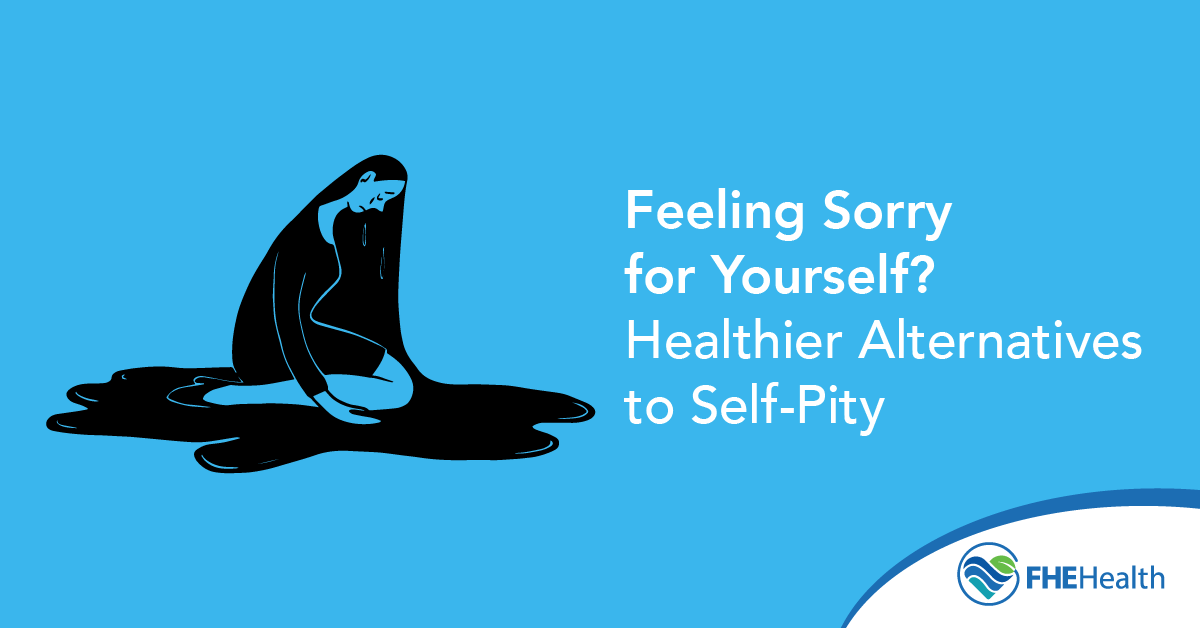
When feeling depressed or hopeless, you might find yourself wallowing in self-pity or otherwise becoming absorbed in your own struggles and hardships. Rather than being a fleeting observation of triumph over an obstacle, this self-pity sometimes turns into an all-consuming sort of grief or complaint. If it’s left unchecked, it may infect other important areas of your life, such as jobs, relationships and friendships.
What Self-Pity Is and Why It Happens
If it’s severe enough, self-pity can become a lens through which the rest of life is viewed, diminishing overall well-being. Isolation also compounds this issue; without outside influence and advice, an echo chamber effect can lead to self-pity worsening over time. In 2024, the Centers for Disease Control cited studies that found approximately 30% of Americans reported feeling lonely, and as many as 25% stated they had no social or emotional support.
These conditions prevent the healthy introspection and social network that combat self-pity. Without stabilizing contact with loved ones and friends, momentary problems can feel like a never-ending pattern of bad luck, one specifically targeted at you. This isn’t true, of course, but without a critical look at those harmful beliefs, it becomes easier to convince yourself that the world is against you.
How Chronic Self-Pity Affects Mental Health
Casting yourself as the tragic, constantly put-upon hero of your own life story is tempting — popular movies and books do so all the time to make compelling characters, after all. However, unlike those fictional characters, you need to interact with the world around you every day, including others who don’t know the entirety of your life story. If everything you outwardly express is sad, forlorn and pessimistic, that attitude will spread like mold to the rest of your emotions, making you sad and cynical.
Recognizing When You’re Stuck in a Negative Loop
Quick: Think about the last win you had in your life. Were you able to express it without linking it to something negative or blaming someone for giving you the obstacle to overcome in the first place? If not, you might need to examine your thought patterns or look for professional support. If you’re struggling, you’re not alone. A 2023 article by the National Institutes of Mental Health notes that nearly 1 in 5 Americans has some form of mental illness. It also notes that nearly half of those individuals fail to seek proper diagnosis and treatment.
Healthier Ways to Cope With Disappointment and Pain
When you’re already feeling low, there’s a lot of temptation to dwell on what you should’ve done in a situation that went poorly. However, in the vast majority of cases, there’s no way to go back and correct what you did wrong. Instead, think about figuring out the unexpected ways a loss can be a win. For example: “I didn’t get the promotion, but that means I don’t have to work late on Mondays. Now I can take that pottery class I was interested in that would have otherwise been a schedule conflict.”
That said, knowing how to stop feeling sorry for yourself is different from actually doing the work, which is why external support and accountability are crucial. While it can be difficult to admit you’re stuck in a harmful cycle of self-pity, admitting the problem and confronting it with others will help you move beyond it.
Building Resilience Through Mindset Shifts
Therapeutic techniques like regular talk therapy, group therapy and cognitive behavioral therapy can make a big difference in minimizing or eliminating self-pity tendencies. The echo chamber of your own internal narrative can keep you trapped in a negative loop if you let it, which is why it’s so important to get outside help and opinions, particularly from medical professionals. This approach will ensure you have internal responses that stop the cycle, blocking the negative self-talk and defeatist attitudes that are preventing the best version of you from thriving.
When to Seek Support for Underlying Issues
If your self-pity habits are impacting your relationships, job and day-to-day well-being, it’s time to get the help and support you need. You’re more than what you’ve overcome, and there’s no shame in getting assistance when it comes to remembering that.
You deserve to be happy, so take the first step today by contacting FHE Health today. Our team of dedicated professionals can help you get to the root of your problems and learn how to overcome them without the crutch of self-pity.






